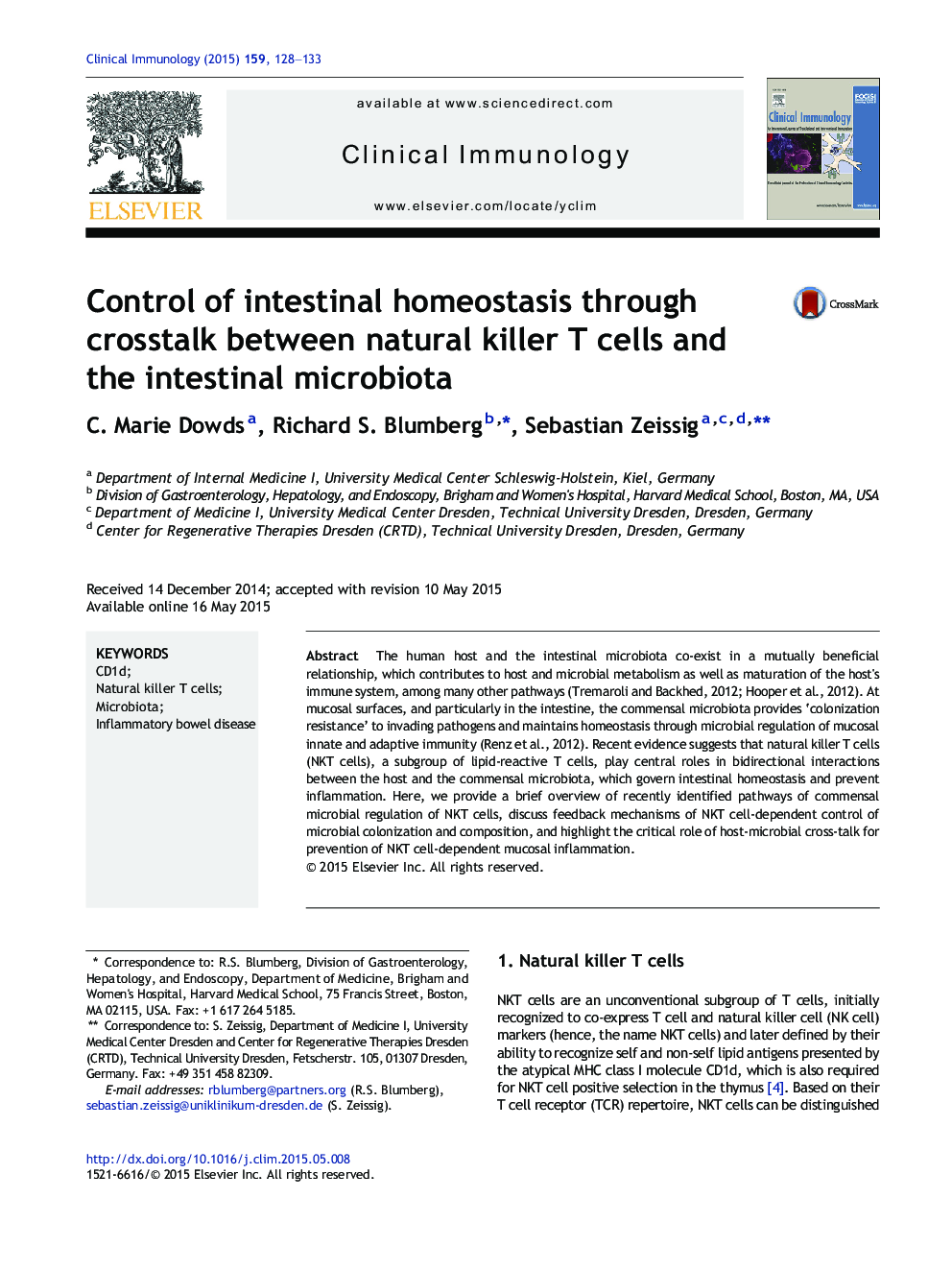| Article ID | Journal | Published Year | Pages | File Type |
|---|---|---|---|---|
| 6087305 | Clinical Immunology | 2015 | 6 Pages |
â¢The commensal microbiota has early and persistent effects on iNKT cell development.â¢Regulation of iNKT cells occurs through antigen-dependent and -independent pathways.â¢Commensal microbial control of iNKT cells protects from mucosal inflammation.â¢iNKT cells regulate epithelial cytokine and antimicrobial peptide production.
The human host and the intestinal microbiota co-exist in a mutually beneficial relationship, which contributes to host and microbial metabolism as well as maturation of the host's immune system, among many other pathways (Tremaroli and Backhed, 2012; Hooper et al., 2012). At mucosal surfaces, and particularly in the intestine, the commensal microbiota provides 'colonization resistance' to invading pathogens and maintains homeostasis through microbial regulation of mucosal innate and adaptive immunity (Renz et al., 2012). Recent evidence suggests that natural killer T cells (NKT cells), a subgroup of lipid-reactive T cells, play central roles in bidirectional interactions between the host and the commensal microbiota, which govern intestinal homeostasis and prevent inflammation. Here, we provide a brief overview of recently identified pathways of commensal microbial regulation of NKT cells, discuss feedback mechanisms of NKT cell-dependent control of microbial colonization and composition, and highlight the critical role of host-microbial cross-talk for prevention of NKT cell-dependent mucosal inflammation.
